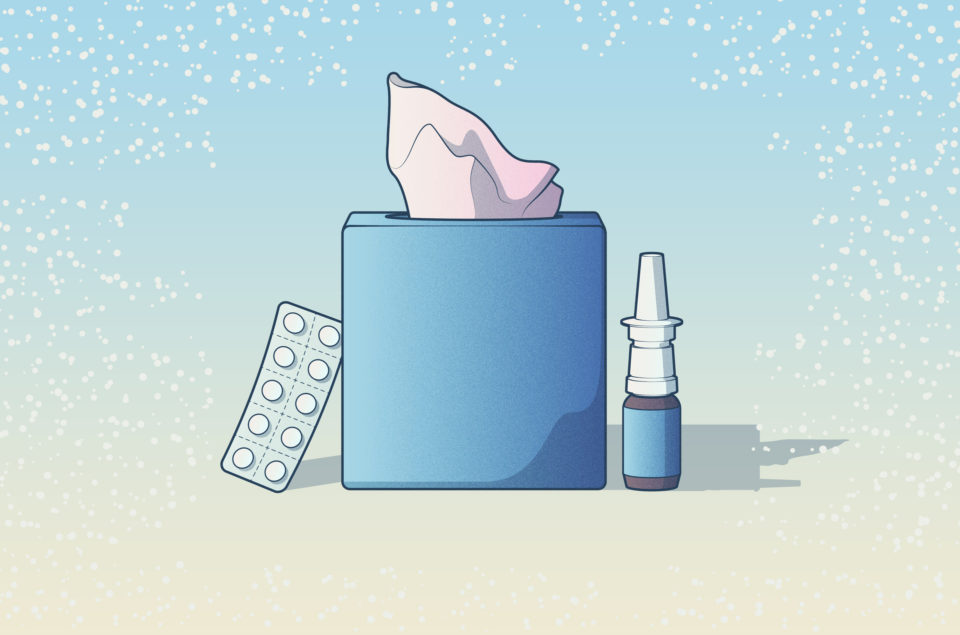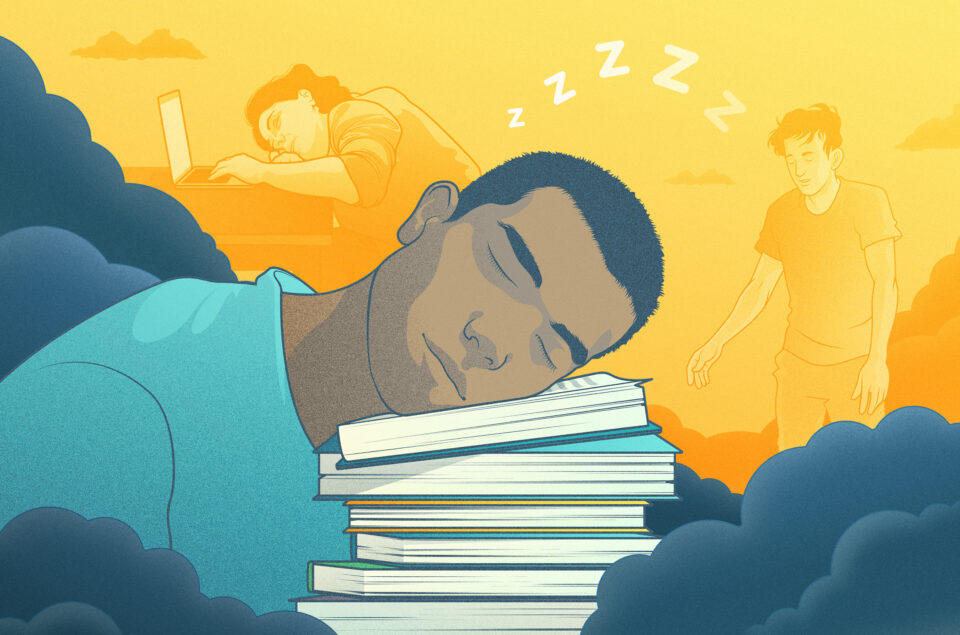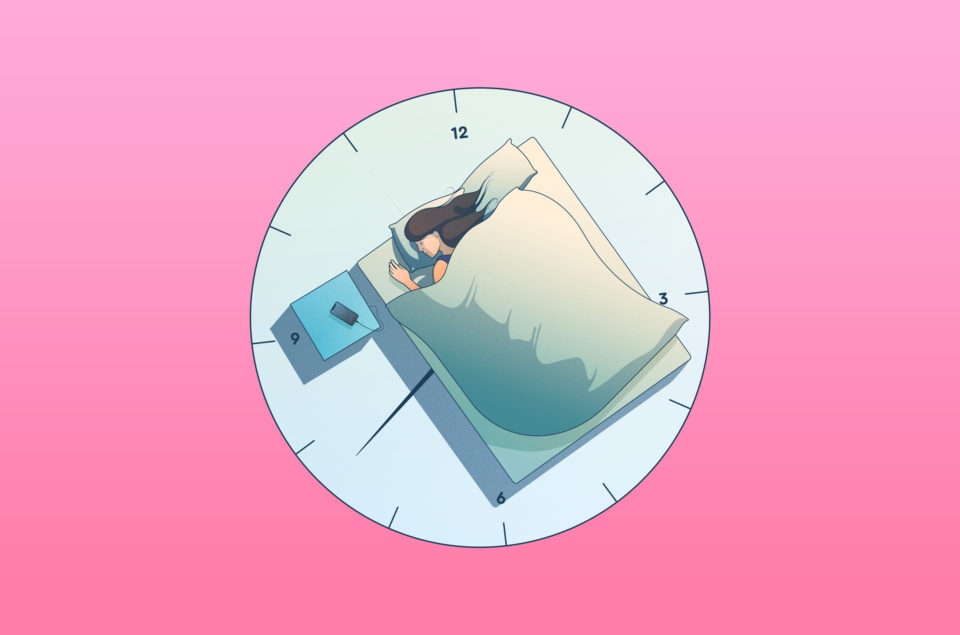Since the late ’80s, we have known that teens’ body clocks shift later. In other words, they begin to get sleepy later at night. The shift starts early in puberty, usually around 10 years old, and continues into the early 20s. This in itself isn’t a problem.
However, according to the U.S. Department of Education, the average start time for public high schools falls between 7:30 a.m. and 8:20 a.m. Keeping in mind that the American Academy of Pediatrics (AAP) recommends that middle and high schools should start no earlier than 8:30 a.m. so that teens can sleep the recommended hours – 8-10 hours nightly – it’s clear that we’ve got a problem here.
The good news is that some states are looking to address this. California is one such state that is taking this into consideration and making a change. From this course 2022-2023, the state requires that public high schools begin classes no earlier than 8:30 a.m, and that middle schools don’t start before 8:00 a.m. – following the pioneer decision of Seattle Public Schools, which in 2016 shifted its start time and students got about half an hour more sleep per night. What does this mean for the health of teenagers? And why are school start times such a matter of importance?
How do school start times impact the sleep of American teenagers?
The American Academy of Sleep Medicine recommends that teens should sleep 8-10 hours nightly. Between the biological shift towards later bedtimes and the early school start times, most American teens are falling woefully short of this.According to internal data from Sleep Cycle, which looked at the sleeping habits of American teens from/to 13-19 during 2019, 2020 (pandemic with full lockdowns and remote learning) and 2021, it’s evident how early-school-start times impact the sleep duration and wake-up times of these teens:
| 2019 | 2020 | 2021 | |
| Average sleep duration on school nights | 6 hours and 55 minutes | 7 hours and 7 minutes | 6 hours and 50 minutes |
| Average bed time | 11:57 p.m. | 12:19 a.m. | 12:08 a.m. |
| Average wake up time | 7.46 a.m. | 8:30 a.m. | 8:11 a.m. |
Some key findings here are:
- It was possible to see some positive trends in the sleep duration and the average wake-up during the pandemic: the teens slept 10 more minutes, woke up 45 minutes later and their sleep quality slightly increased. However, teens got the lowest average sleep quality globally during the pandemic.
- In 2021 and after lockdowns, the young students kept the same bedtime but returned to school, which decreased the sleep duration. The average wake-up time was later than the average observed in 2019, which could indicate the presence of remote learning early that year or a hybrid instruction model.
- Regardless, this data confirms that our average American teen users don’t sleep the recommended hours – they didn’t even get enough sleep during lockdowns.
What impact does this have?
The benefits of later school start times
When Seattle Public schools shifted their start times almost an hour later back in 2016-2017 (from 7:50 a.m. to 8:45 a.m.), teenagers used that extra time to sleep in as expected. Research found that this boosted the total sleep duration on school nights – the students ended up getting 34 minutes more sleep on average, increasing their nightly total from 6 hours and 50 minutes to 7 hours and 24 minutes. And, moreover, they stopped sleeping-in during the weekends and in general improved their sleep quality.
The study didn’t just show a significant improvement in the hours of sleep of students – their academic performance improved and the first-period absences dropped. This is in line with what the CDC already suggested a few years ago – teens who do not get enough sleep are more likely to:
- be overweight – one study estimated that for each hour of sleep lost, the odds of being obese increased in adolescents by 80%.
- not getting enough exercise – lack of sleep not only leads to increased hunger and eating more, but also to less energy for exercise.
- suffer from depression – prolonged sleep loss may negatively affect social and emotional functioning, increasing the risk of depression.
- get bad grades – A good night’s sleep promotes better attention, memory and creativity.
- engage in unhealthy risk behaviors like drinking, smoking, and drug use.
- There is also a correlation between lack of sleep and mood problems(including suicidality): raging hormones might not be the only culprit behind the grumpiness – the cause could also be sleep deprivation.
It is indeed one area of research where the results are conclusive: there is an enormous body of research showing that later school start times have positive outcomes. In contrast, there are no studies that show students do better with an earlier schedule. And yet it is staggering how slowly the research knowledge has translated into public policy on this issue.
However, the new law in California means progress, and it remains to be seen if the schools that delayed their start times for remote learning will keep that schedule in place in the future. In the meantime, the great national nonprofit Start School Later continuously works on promoting the benefits of later school start times, and now has chapters in many states around the country.
So how can you help your teen to sleep better?
Sleep deprivation is an epidemic among teens, and quality sleep plays a crucial part in facilitating this process. There are different ways you, as a parent, can address this issue to support your teen to get the sleep they need and improve their sleep:
- Please don’t fall for the myth that your teens can make up for lost sleep on the weekends. The research simply doesn’t support this idea. As an example, you would never feed your teen two-thirds of the food that they need Monday through Friday to then let them eat as much as they need to on the weekends.
- Trying to establish good sleep hygiene is also important, which can include things like keeping screens and smartphones out of the bedroom and limiting screen time before bed.
- If your teen is struggling with severe mood problems, get an expert involved. Don’t wait until it reaches a crisis. One of the things that are seen several times in clinics are teenage patients who come in who have been suicidal; some have sadly even made attempts. They come in sleep-deprived, depressed; their shoulders are hunched, looking down. They let their parents do most of the talking during the first appointment. Then in subsequent appointments, as they work to improve their sleep, they’re standing tall; they begin speaking for themselves.
- Parents who seek help for their children, often say that they wished they had worked on their kid’s sleep sooner. It’s such a traumatic experience for a young person when part of the solution may be as simple as getting a good night’s sleep.
- But the most important thing you can do is to get involved in the push for later school start times, and “Start School Later” is an excellent resource for that.
Our job as parents is to keep the focus on how we can set our system up to promote teen health and optimal learning, and set up systems so that our teenagers can thrive! Want to learn more about how parents and teens can work together to build healthy sleep habits? Check out our special post about teens and sleep.










